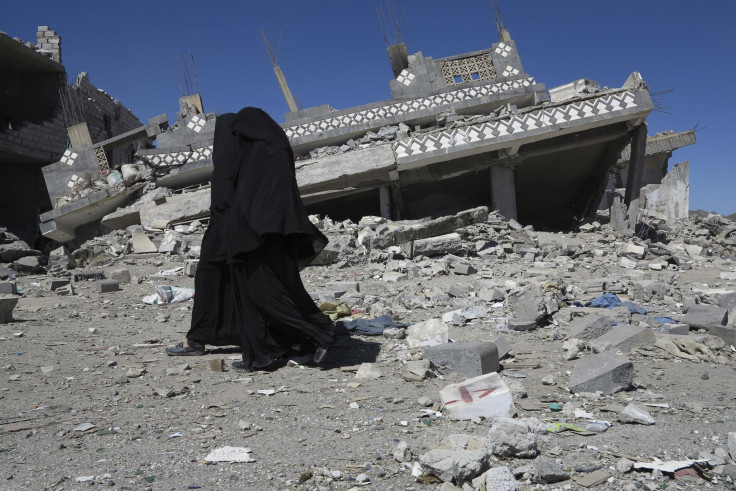Terrorists Disguised As Women: Al Qaeda Militants Attempt Border Crossing In Yemen Wearing Niqabs

Several militants with suspected ties to Al Qaeda were shot dead at a border crossing Saturday by Yemeni soldiers. The militants were allegedly attempting to enter Saudi Arabia disguised as Muslim women. All six men in the vehicle wore black robes and niqabs, a face covering often worn by Yemeni women, who are rarely inspected by security officials in the conservative Islamic country at border crossings, the BBC reported.
Sources differ on how many militants were killed. Yemeni security officials said three militants were fatally shot after soldiers opened fire on the vehicle, however the Agence France-Presse reported five deaths. The surviving suspects, one of whom was wounded, were being questioned. The driver of the vehicle confessed he and the other passengers were members of Al Qaeda and their objective was to kill Saudi border guards, the BBC reported.
"As one of the soldiers climbed on board the bus for an inspection, one of the suspects opened fire and wounded him, prompting shooting from other soldiers at the checkpoint," a government official said, according to the AFP. Among the contents found inside the vehicle were a so-called suicide belt and several firearms.
The militants were members of an Al Qaeda offshoot known as Al Qaeda in the Arabian Peninsula, or AQAP, a Sunni extremist group considered the deadliest division of the global Al Qaeda network. The group officially formed in 2009 but has been active in the region since the 1990s, according to the Council on Foreign Relations. The U.S. Department of State estimates there are roughly 1,000 members. The group has claimed responsibility for several attacks on Western outposts, including a 2008 attack on the U.S. embassy in Sanaa, Yemen’s capital.
Saturday’s attempted border crossing wasn’t the first time suspected Al Qaeda militants have dressed as women to evade detection and is thought to be a common practice in the Middle East, according to the NATO-led International Security Assistance Force, which helps train security forces in Afghanistan. In 2011, there were “several instances of targeted males wearing burqas in attempts to disguise themselves in order not to be caught by Afghan-led forces,” the security force reported.
© Copyright IBTimes 2024. All rights reserved.






















